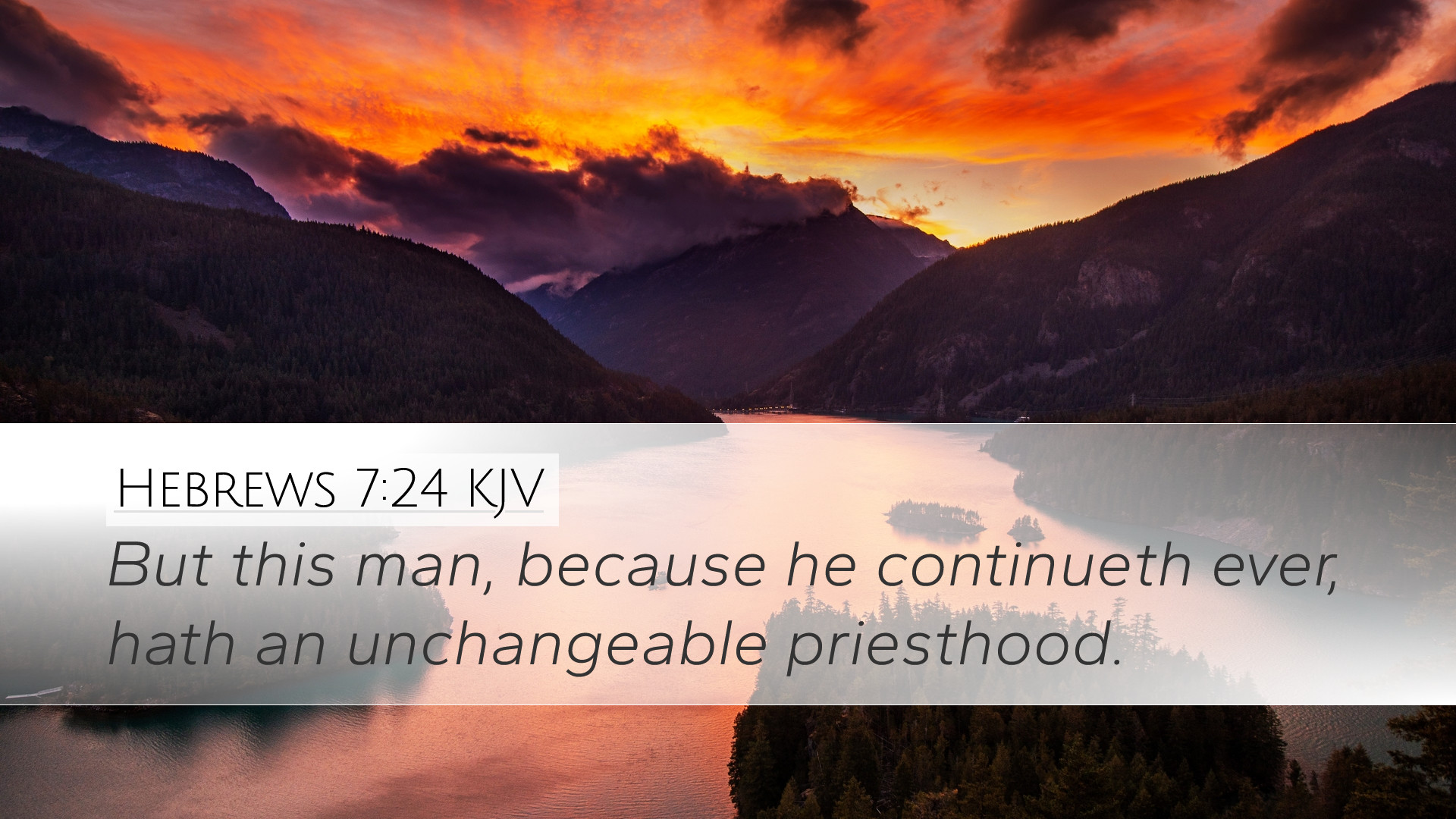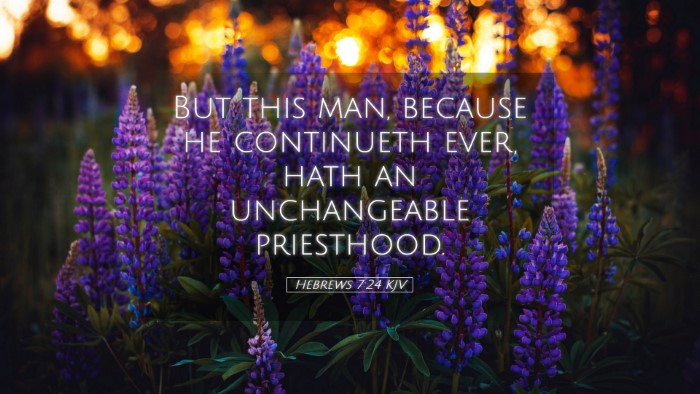Commentary on Hebrews 7:24
Hebrews 7:24 states: "But this man, because he continueth ever, hath an unchangeable priesthood." This verse emphasizes the everlasting nature of Christ's priesthood, a theme that is crucial to the understanding of the New Covenant and the unique nature of Jesus' role as our High Priest.
Exegetical Insights
The verse begins with a contrast to the Levitical priesthood, which was temporary and subject to human limitations. In exploring this contrast, we must consider the following key elements:
-
Christ's Eternal Nature: The phrase "this man" refers specifically to Jesus Christ, signaling His humanity despite His divine status. Matthew Henry emphasizes that Jesus, being eternal, is not like the lineage of priests who were appointed and subsequently died. This eternal nature signifies that believers can have confidence in His perpetual advocacy.
-
Unchangeable Priesthood: The term "unchangeable" indicates the permanence of Christ's priestly role. Albert Barnes points out that the Levitical priesthood was constantly changing due to death, but Christ’s priesthood remains effective and unaltered. This brings assurance of His continual intercession for believers.
-
Contrast to the Old Covenant: Adam Clarke notes that the Old Covenant priests, despite their lineage and service, could not achieve the eternal redemption that Christ offers. This sets the stage for understanding how Christ fulfills the law and surpasses the earlier covenant established with Israel.
Theological Implications
The implications of Hebrews 7:24 for theology and doctrine are profound:
-
Security in Salvation: Because of Christ's unchangeable priesthood, believers can have full assurance in their salvation. This aspect is highlighted by Henry, as he asserts that Christ's unceasing role as High Priest guarantees that no believer can fall away completely since He always intercedes.
-
Assurance of Access: In light of Hebrews 4:14-16, this unchangeable priesthood assures believers of direct access to God. Clarke elucidates that, unlike the Old Testament priests who acted as intermediaries, Christ’s unique role invites all to approach God with confidence.
-
Understanding of Covenant Theology: This verse contributes to our broader understanding of covenantal frameworks within the Bible. Barnes illustrates that the transition from the old to the new covenant presented a radical shift in how God interacts with humanity, emphasizing the need for a perfect mediator, fulfilled in Christ.
-
Encouragement in Trials: The permanence of Christ’s priesthood provides comfort during trials and tribulations. Believers can rest in the knowledge that their advocate is always present, as noted by Henry, reminding them that they are never alone in their struggles.
-
Implications for Christian Leadership: Pastors and church leaders can draw from this passage regarding the nature of their leadership. The model of Christ’s unchanging role serves as a reminder that spiritual leadership must be rooted in Christ, preserving the integrity and steadfastness of their roles.
-
Call to Holiness: Understanding Christ’s eternal intercession compels believers to live out their faith more earnestly. This call to holiness is underscored by Clarke, who urges believers to not take their position lightly but to strive for Christlike character as they reflect on His continual intercession.
Conclusion
In conclusion, Hebrews 7:24 profoundly influences our understanding of Christ's priesthood and its implications for faith and practice. The unchangeable nature of Jesus as our High Priest reassures believers of their salvation, encourages faithful living, and strengthens the role of Christian leaders.
By comprehensively grasping the depth of this scripture, we are led to a greater appreciation for the intricacies of God's redemptive plan, solidifying our faith in the permanence of Christ's work on our behalf.


